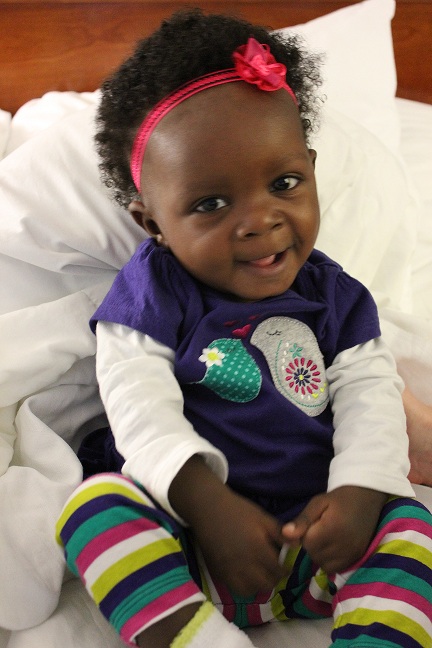8
Mar
March 8, 2012
in Congo, MLJ Adoptions
 I have talked with many prospective adoptive families who have attempted to adopt previously. I have heard horrific stories of families traveling to Ethiopia and Congo only to arrive and the child is so ill that they lie limp in their parent’s arms. I have listened as an adoptive parent explained their story through grief stricken tears that while they were in country, their adopted child passed away in their arms. Parents have rode the emotional roller coaster of international adoption, bonded with this child through a photo, worried about this child, loved this child, was excited to bring their child home and traveled thousands of miles to Africa only to watch helplessly while their child passed away in their arms.
I have talked with many prospective adoptive families who have attempted to adopt previously. I have heard horrific stories of families traveling to Ethiopia and Congo only to arrive and the child is so ill that they lie limp in their parent’s arms. I have listened as an adoptive parent explained their story through grief stricken tears that while they were in country, their adopted child passed away in their arms. Parents have rode the emotional roller coaster of international adoption, bonded with this child through a photo, worried about this child, loved this child, was excited to bring their child home and traveled thousands of miles to Africa only to watch helplessly while their child passed away in their arms.When first visiting DR Congo to investigate the possibility of international adoptions, it became painfully clear that the orphanages we visited lacked even the most basic resources to properly care for the children. Poverty was everywhere. The meals were cooked outside on an open flame. No running water, no medical care and some did not even offer mats for the children to sleep on.
These children needed care NOW. Interim care for the children while they were waiting on their adoptions to be completed was a necessity.
Yes, mandating foster care for these children costs additional money, making the adoption process more expensive. However, these children needed nutritious food, clothing, medical care and most importantly love and they needed it as soon as possible. If the money was not spent prior to the children coming home, it would be spent after they were united with their new families in the US.
Interim care provides, but is not limited to:
- Nutritious food, formula, vitamins and supplements if needed
- Clean water
- Medical Care/Immunizations
- Around the clock personal care
- Clean environment
- Clothing, toys & school supplies
- Protection against child trafficking
- Most importantly, being loved in a family environment
The being loved, by far, has proven to be the most important. Now, instead of listening to a distraught parent who has lost a child, I receive phone calls and emails from parents expressing their gratitude that someone loved their child which enabled them to make the transition into their new family easier, it made bonding and adjustment easier. They knew how to accept love and return it.
We offer foster care in both our Congo and Samoa programs and have had great success. We have been praised by the embassies for how healthy our adopted children are compared to other agencies’ children in these countries. We do not offer foster care for the praises, we offer foster care in our programs because it is what is in the best interest of the children. Before they come home they are given what they need to thrive and come home as healthy as possible. The ugly truth is that children die in orphanages all over the world. I think everyone would agree that a child’s life and health is more important than the expense involved in providing that child with the basic resources they are entitled to as human beings.
